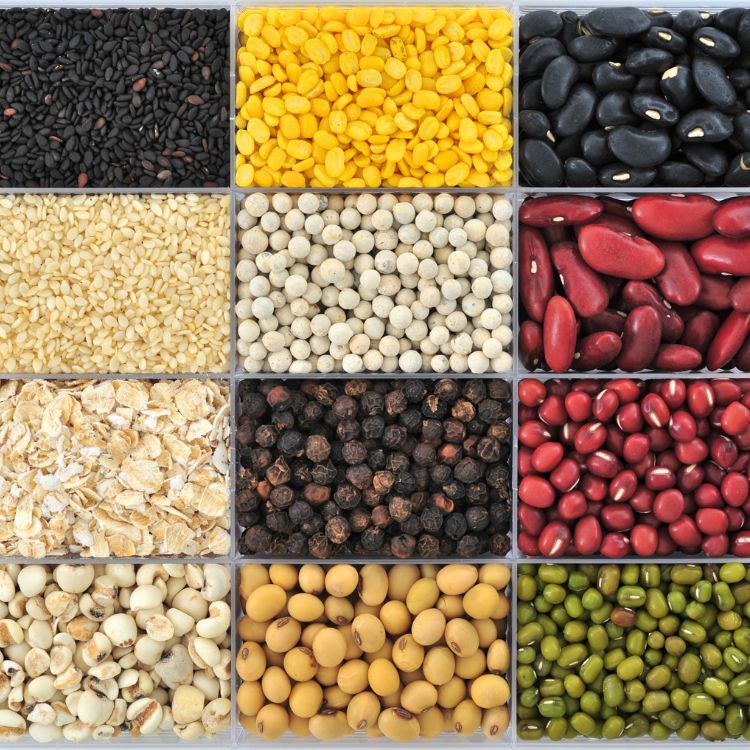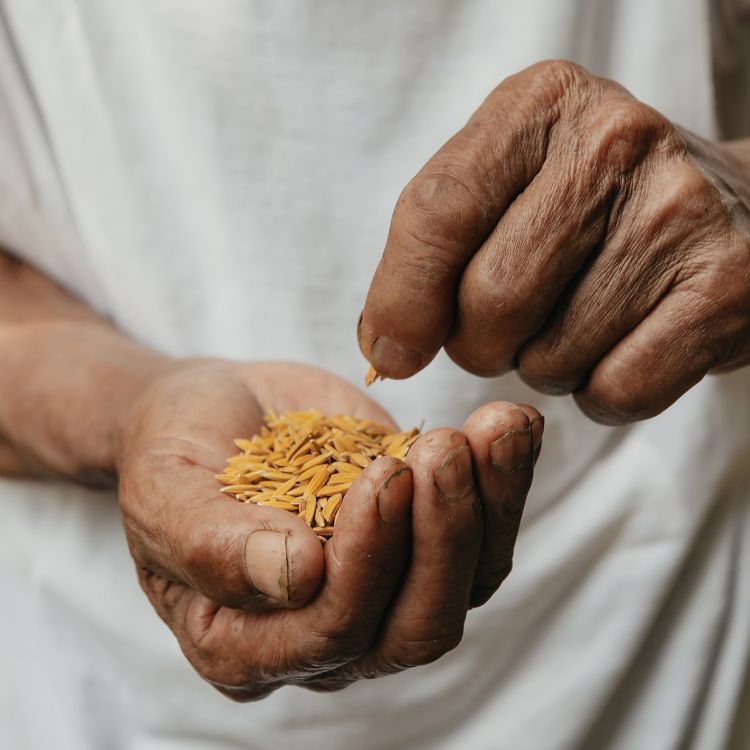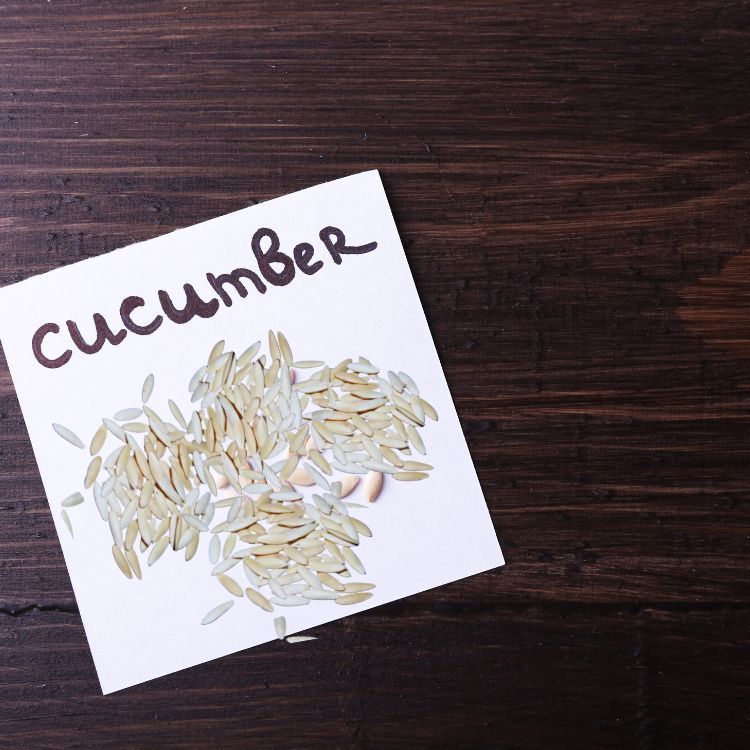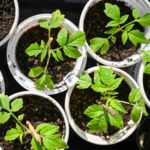
Article-at-a-Glance
Understanding the Federal Seed Act is crucial for gardeners who save and share seeds.
State regulations on seed saving can vary widely and have significant local impact.
Proper seed labeling is not just good practice—it’s a legal requirement.
Trading and selling seeds may require awareness of patent laws and licensing agreements.
Creating a seed saving plan can help ensure compliance with regulations and preserve heirloom varieties.
Seeds of Compliance: Understanding Your Legal Ground
Hey there, fellow gardeners! Let’s dig into something super important—seed saving regulations. You might be wondering why these matter to you. Well, if you’re saving seeds from your garden or thinking about sharing them with others, there are rules you need to follow. I’m here to help you understand these guidelines so you can keep doing what you love without any legal hiccups.
The Ground Rules of Seed Saving
First things first, let’s talk about the basics. Seed saving is an age-old practice, but today, it’s not just about drying and storing seeds for next season. It’s also about ensuring those seeds are safe and legal to share or sell. Why? Because there are laws that protect consumers and the environment from potential harm that can come from mislabeled or contaminated seeds.
Deciphering the Federal Seed Act
The Federal Seed Act (FSA) is like the big umbrella that covers the whole United States. This act makes sure that seeds sold or transported across state lines are properly labeled and meet certain quality standards. Here’s what you need to know:
Seed purity percentage, germination rate, and noxious weed seed content must be listed on labels.
If seeds are treated with chemicals, that needs to be stated clearly.
The type and variety of the seed should be specified to avoid any confusion.
By following these rules, you’re not only keeping in line with the law but also helping other gardeners know exactly what they’re planting.
Your Rights as a Gardener and Seed Saver
Now, you might be thinking, “Do these laws affect my little backyard garden?” Here’s the scoop: if you’re just saving seeds for your personal use, you’re generally in the clear. The FSA mostly applies to those who are selling or trading seeds. But it’s still smart to know the law because, who knows, one day you might want to share your awesome tomato seeds with the world!
And remember, there’s a big difference between sharing seeds with your neighbor and selling them at the local farmers’ market. Once money is involved, it’s a whole new ballgame. For more information, review the Federal Seed Act guidelines.
Quick Tips for Staying Within the Lines
So, how can you make sure you’re on the right side of these regulations? Here are some quick tips:
Always label your seeds with as much information as possible.
If you’re treating seeds with anything, say so on the label.
Keep up-to-date with your local state regulations—they can have additional rules.
Sticking to these guidelines will help you avoid any trouble and keep your gardening conscience clear.
Navigating State Regulations on Seed Saving

Okay, so you’ve got the federal laws down. But wait, there’s more! Each state can have its own set of rules for seed saving and sharing. These can be a little trickier because they’re not one-size-fits-all. Let’s get into why that matters to you.
State-by-State Guide to Seed Laws
Every state in the U.S. has the authority to set its own seed laws, and they can be quite different from one another. For example, some states might require additional tests for seed viability or specific labeling beyond what the FSA requires. It’s a good idea to check with your state’s department of agriculture for the nitty-gritty details.
Why State Regulations Matter
State laws matter because they often address specific concerns unique to that state’s environment and agriculture. Plus, if you’re selling or trading seeds locally, you’ll need to comply with these laws to avoid fines or other penalties. It’s all about protecting local ecosystems and making sure gardeners are getting quality seeds.
Repercussions of Non-Compliance at a Local Level
Ignoring state seed laws can lead to some serious consequences. We’re talking fines, cease and desist orders, and even having your seeds confiscated. Not fun, right? So, it pays to do your homework and make sure you’re following the rules.
Most importantly, these regulations are not there to make life harder for you. They’re there to ensure that everyone in the gardening community is playing fair and safe. Because at the end of the day, we all want to grow beautiful, healthy plants.
Repercussions of Non-Compliance at a Local Level
Now, if you’re thinking, “What’s the worst that can happen if I don’t follow these state seed laws?” Let me paint a picture for you. Not following the rules can lead to more than a slap on the wrist. You could be facing hefty fines or, in extreme cases, legal action. States take their agriculture seriously, and they don’t take kindly to anyone introducing potentially harmful seeds into the environment.
Legal Tips for Trading and Selling Saved Seeds
Let’s switch gears and talk about trading and selling your saved seeds. Whether you’re looking to swap seeds with fellow gardening enthusiasts or you’re aiming to turn your green thumb into green bills, you need to stay within legal boundaries. Here are some tips to keep you out of the weeds: For a deeper understanding, review the Federal Seed Act guidelines.
Understanding Seed Patent Laws
Before you even think about selling or trading, you need to know about seed patents. Some seeds are patented, meaning the company that developed them has exclusive rights to their use. If you’re caught selling or trading these patented seeds without permission, you could be in for a world of legal trouble. Always check if the seeds you want to share are patented or not.
Safe Practices for Seed Exchange
When it comes to seed exchanges, safety is key. Here are some best practices:
Know where your seeds come from and their history.
Only exchange seeds that are not under patent protection or have restrictive licensing agreements.
Be transparent about the quality and characteristics of the seeds you’re offering.
By following these practices, you can ensure a fair and safe exchange for everyone involved.
Licensing Agreements You Should Know About
Besides patents, some seeds come with licensing agreements. These agreements might restrict how you can use the seeds and whether you can sell or trade the plants that grow from them. Always read the fine print and understand the terms before you distribute these seeds.
The Importance of Proper Seed Labeling

Labeling your seeds correctly isn’t just good gardening—it’s the law. Proper labeling ensures that anyone who gets their hands on your seeds knows exactly what they’re planting. It’s crucial for traceability, safety, and consumer protection.
Breaking Down Labeling Requirements
So, what needs to be on a seed label? Here’s the breakdown:
The common name of the plant, and the cultivar if applicable.
A clear indication if the seeds have been treated with any chemicals.
The germination rate, so gardeners know what to expect.
Any potential allergens, especially if the seeds are for edible plants.
Getting these details right will keep you compliant and give your fellow gardeners peace of mind.
How to Accurately Label Your Seed Packages
To label your seed packages accurately, gather all the necessary information about your seeds. Then, clearly print or write this information on the package. If you’re not sure about something, better to err on the side of caution and do some research. Your state’s agricultural department can be a great resource for labeling guidelines, or you can refer to the Federal Seed Act for comprehensive federal guidelines.
Consequences of Mislabeling: A Cautionary Tale
Mislabeling seeds can lead to serious consequences. For example, if you accidentally label a weed seed as a vegetable seed, you could be responsible for the spread of an invasive species. That’s why it’s so important to take the time to label your seeds correctly.
Creating a Seed Saving Plan for Compliance
Alright, let’s bring it all together. To make sure you’re following all these regulations, you need a plan. A seed saving plan will help you track what you’re growing, saving, and sharing. It’ll also ensure you’re on top of any legal changes that might affect your garden.
Setting Up Your Salvation Garden Legally
When setting up your garden with the intention of saving and sharing seeds, start with a clear understanding of the laws. Then, choose non-patented, open-pollinated varieties that you can freely save and share. Document everything: what you plant, how you care for it, and the results. This documentation will be your safety net if any questions about compliance arise.
When setting up your garden with the intention of saving and sharing seeds, start with a clear understanding of the laws. Then, choose non-patented, open-pollinated varieties that you can freely save and share. Document everything: what you plant, how you care for it, and the results. This documentation will be your safety net if any questions about compliance arise.
Preserving heirloom varieties is not only about keeping a piece of history alive but also about ensuring biodiversity. These varieties are often not covered by patents, which means you can save and share them without worrying about legal repercussions. By focusing on heirlooms, you’re contributing to a sustainable gardening culture that values diversity and resilience.
Documentation is your best friend when it comes to proving compliance. Keep records of where your seeds came from, how you’ve stored them, and any treatments they’ve undergone. This way, if you ever need to prove that you’re following the rules, you have everything at your fingertips.
FAQ
Got questions? You’re not alone. Here’s a quick rundown of some frequently asked questions to help you stay informed and confident in your seed saving endeavors.
What is the Federal Seed Act and how does it affect me?
The Federal Seed Act sets standards for the labeling and quality of seeds in commerce. If you’re selling or trading seeds, you need to ensure your seeds are labeled with the correct information about purity, germination, and variety. This helps maintain a trustworthy market for seeds and protects buyers.
If you’re a casual gardener saving seeds for personal use, the act has less impact on you. However, it’s always good to be aware of these regulations, as they set the standard for seed quality and labeling that you might want to adhere to for your own benefit.
Can I save seeds from patented plants?
Short answer: No. Patented seeds are legally protected, and saving them can infringe on the patent holder’s rights. Always check the patent status of a plant before saving its seeds. If it’s patented, you’ll need to buy new seeds each season or choose non-patented varieties to save.
What are some common state regulations on seed saving I should know?
State regulations can vary, but common ones include additional labeling requirements, germination testing, and prohibitions on selling seeds of invasive species. Check with your state’s agriculture department for the specifics. Compliance is key to a hassle-free gardening experience.
For instance, some states may require you to register as a seed dealer if you’re selling seeds, while others have strict rules about the sale of seeds from certain plants that might be considered noxious weeds in that region.
Therefore, understanding your state’s regulations is as important as knowing the federal laws. It’s all about protecting local agriculture and ensuring the quality of seeds within the state.
How can I ensure my seed labels meet legal requirements?
To ensure your seed labels meet legal requirements, include the species and variety name, a lot number for traceability, germination percentage, and the date of the germination test. If the seeds are treated, that must be clearly stated as well. When in doubt, check the Federal Seed Act for guidance.
Where can I find resources for creating a compliant seed saving plan?
Resources for creating a compliant seed saving plan can be found through your state’s department of agriculture, Cooperative Extension Services, and reputable gardening organizations. They often provide guidelines and workshops on how to save seeds legally and effectively.
Additionally, there are numerous books and online communities dedicated to seed saving where you can learn from experienced gardeners. Look for resources that are specific to your region for the most applicable advice.
Remember, the goal is to empower you with the knowledge to save seeds responsibly and legally. By staying informed and proactive, you can enjoy the fruits (and vegetables) of your labor without worry. And for those looking to take their seed saving to the next level, consider investing in quality heirloom seeds that are not only non-GMO but also come with the peace of mind that you’re growing sustainably. Check out the selection at Survival Essentials and start your compliant gardening journey today.







Leave a Reply